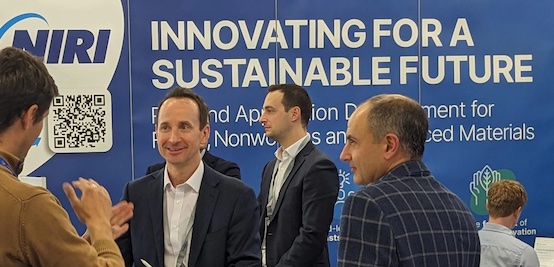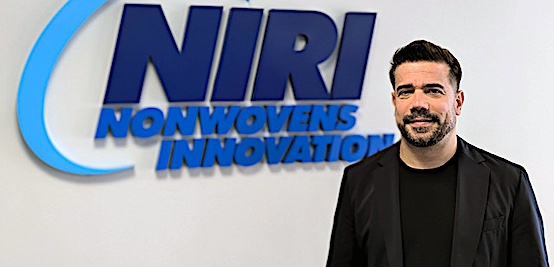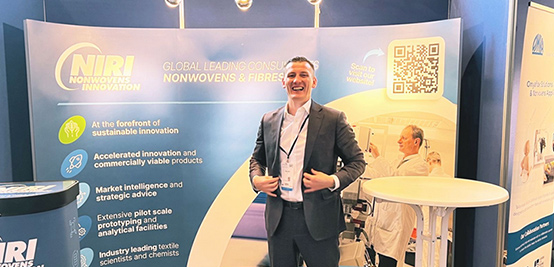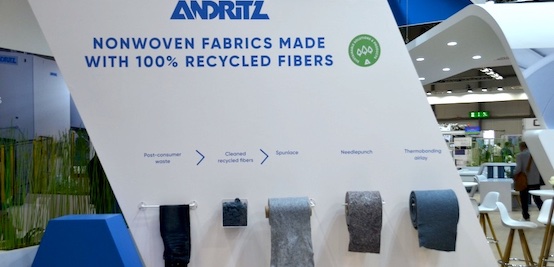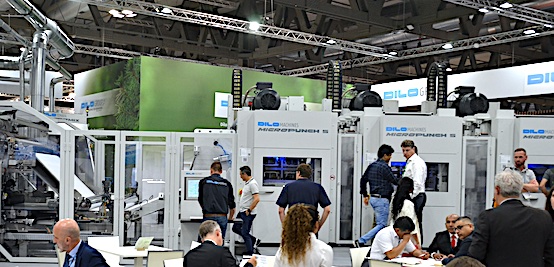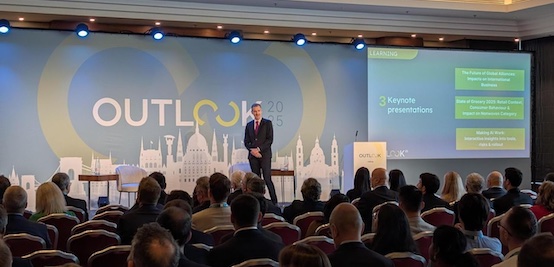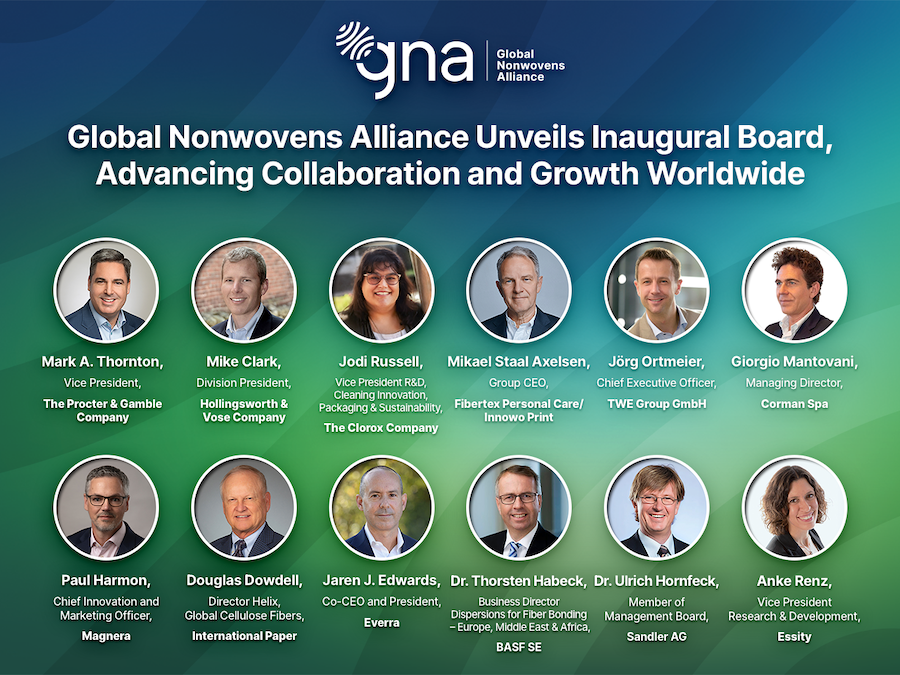#Nonwovens / Technical Textiles
Replacing PFAS – NIRI’s latest white paper explores the challenges and opportunities for sustainable nonwoven product development

NIRI, world-leaders in nonwoven and textile product development and R&D, have produced a new white paper outlining the issues, and exploring potential solutions to help customers maintain a competitive edge while addressing the business-critical aspects of sustainability and social responsibility. The white paper offers insights into how new material science and fibre innovation, coupled with pragmatic product design decisions, can reduce dependency on PFAS or eliminate it altogether, without compromising performance requirements.
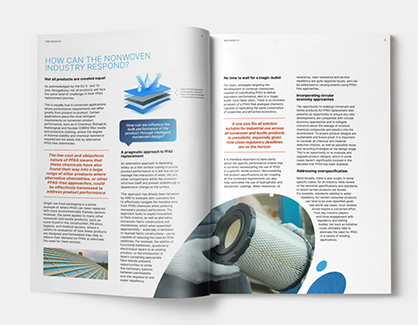
‘Forever chemicals’ have been found to pose significant risks. Unintended leakage has led to long-term environmental accumulation, contaminating soil, ground, and surface water, disrupting ecosystems, and impacting the food chain. The propensity of PFAS to bioaccumulate in the body has been linked to chronic diseases and reduced fertility, with exposure linked to kidney, liver, bowel and thyroid diseases and cancers, as well as acute health conditions such as high cholesterol, increasing the risk of stroke or heart attack. As the unconstrained use of PFAS is neither sustainable nor societally acceptable, access to PFAS is becoming increasingly restricted – posing significant and imminent challenges for industrial usage. In 2025, the European Chemical Agency (ECHA)’s recommendation on the restriction of PFAS will pass into law and become part of REACH regulations. This will mean a total ban on the use of many PFAS above a threshold quantity following an 18-month transition period. In parallel, the US EPA has introduced strategies and programmes to limit human and environmental exposure to PFAS.
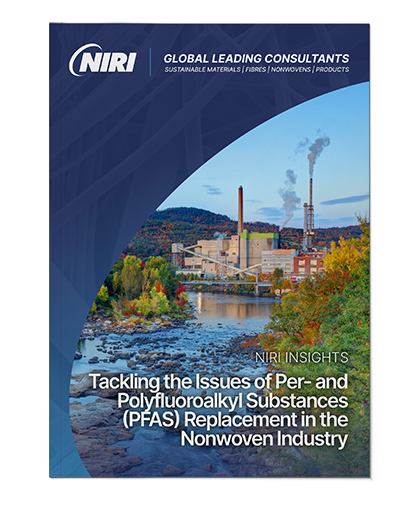
The transition away from PFAS is already impacting manufacturers and convertors in the nonwovens sector, as some companies restrict the use of existing stocks to focus on a smaller number of products, leaving some products out of specification and underperforming. In this context, there is an increasingly urgent need to explore options to reduce or eliminate dependency on PFAS and, given the ubiquitous nature of PFAS across a whole host of sectors, the commercial and regulatory demand to find PFAS-free approaches cannot be ignored.
NIRI’s latest white paper outlines their approach to re-evaluating the design and formulation of products to help companies reduce or eliminate PFAS from their products and processes – an approach that has already been harnessed by NIRI and their customers to evaluate how to effectively navigate the transition from PFAS while still achieving required product performance. NIRI’s approach asks one significant question: how can we influence the bulk performance of the product through intelligent design, rather than relying entirely on surface coatings?
The white paper posits the transition away from PFAS as an opportunity – both to ensure new developments are compatible with circular economy approaches, and as a route to re-evaluating and upgrading designs for futureproof products and greater sustainability. With growing customer awareness of social responsibility, companies who respond to the PFAS-free challenge ahead of regulatory deadlines can be ideally positioned to increase market share through premium brand positioning.

Tackling the PFAS issue is just one example of the many sustainability challenges NIRI is helping to address, as a world-class innovation and product development supplier of sustainable materials, fibres, nonwovens, and their associated products. With industry-leading expertise and full prototyping and analytical capability, NIRI accelerate innovation, develop commercially viable products, identify new market opportunities, and provide world-class scientific advisory services for customers from start-ups to multinationals.
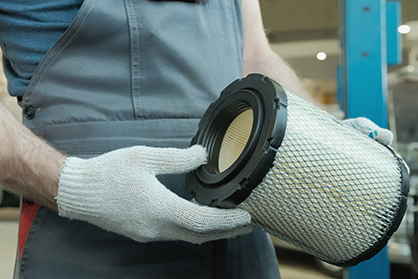
NIRI is trusted by global leading innovators to guide and support them with their most critical and game-changing aspirations – from ideating concepts to assisting the transition to upscaled manufacturing. With over 900 projects completed for more than 450 customers across the full spectrum of the nonwoven supply chain, NIRI’s rapid corporate expansion reflects the value and growth provided to customers, worldwide.
Download NIRIs latest white paper here:
https://www.nonwovens-innovation.com/niri-pfas-whitepaper/



